Legal Spring Cleaning: Why Every Business Needs an Attorney
By Admin March 28, 2024 Category: Compliance

As spring approaches, we urge business owners to prioritize their compliance with corporate, federal, and legal requirements. It's a critical step in ensuring your business stays on track and avoids potential pitfalls down the road. Here's how Chase Law Group, with its wealth of experience and expertise, can guide you through each aspect of compliance and beyond: Tailored Expertise Across Industries and Stages: With years of experience assisting businesses of all sizes, types, and industries, our firm understands the unique challenges you face. Whether you're a startup carving out your niche, a growing enterprise navigating expansion, or an established corporation... READ MORE
Get Prepared: California Employers Required to Implement Workplace Violence Prevention Plan by July 1, 2024
By Admin March 28, 2024 Category: Employment
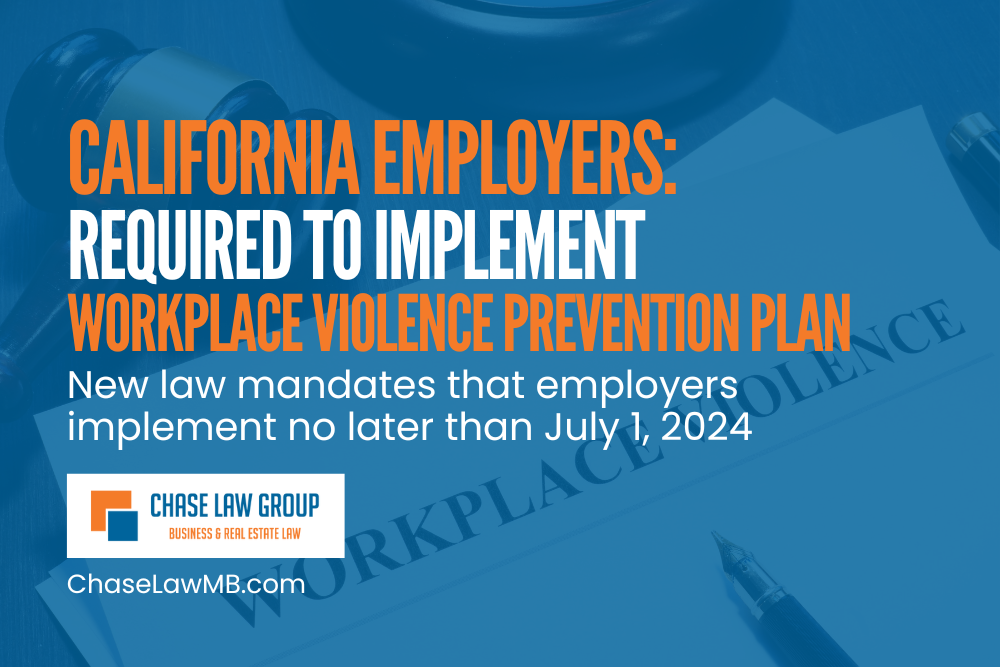
Last year California passed SB 553, which is now Labor Code Section 6410.9, a first in the nation law requiring employers to implement a Workplace Violence Prevention Plan (“WVPP”). The new law mandates that employers create and implement a WVPP no later than July 1, 2024. The WVPP must comply with key requirements of the new law, which will be enforced by Cal/OSHA, who may issue citations and penalties for violations. Section 6401.9 applies to all California employers, with the following exceptions: Employers who are already covered by the Workplace Violence Prevention in Healthcare standard (or employers that already comply... READ MORE
California Job Interviews: Be Careful What You Ask For
By Admin February 26, 2024 Category: Employment

When employers interview job candidates, they appropriately focus on questions that will obtain information they need to hire the right person. However, they must also be sure that they do not ask questions that are prohibited under California law and that can potentially lead to lawsuits including those for discrimination. California employers with five or more employees are covered by the California Fair Employment & Housing Act (FEHA) which prohibits discrimination based upon age, ancestry, color marital status, medical condition, national origin, physical disability, religion, sex or sexual orientation, and military status. (Employers with fewer than five employees should also... READ MORE
What’s in store for 2024? Regulations That Could Impact Small Businesses
By Admin January 29, 2024 Category: Compliance

As we step into 2024, small businesses may face evolving regulations. From the Corporate Transparency Act to the nuanced IRS reporting rules and the watchful eye of the Consumer Financial Protection Bureau (CFPB), business owners must be aware of these areas. In this article, we share a few key regulatory changes to keep an eye on for 2024. Stay informed, stay compliant, and stay ahead with these insights. Corporate Transparency Act & Registering with FinCEN Starting on January 1 2024, your company may be required to report information about the people who own or control it to the US Treasury... READ MORE
Staying Ahead in 2024: Latest Employment Law Updates and Essential Reminders
By Admin January 29, 2024 Category: Employment
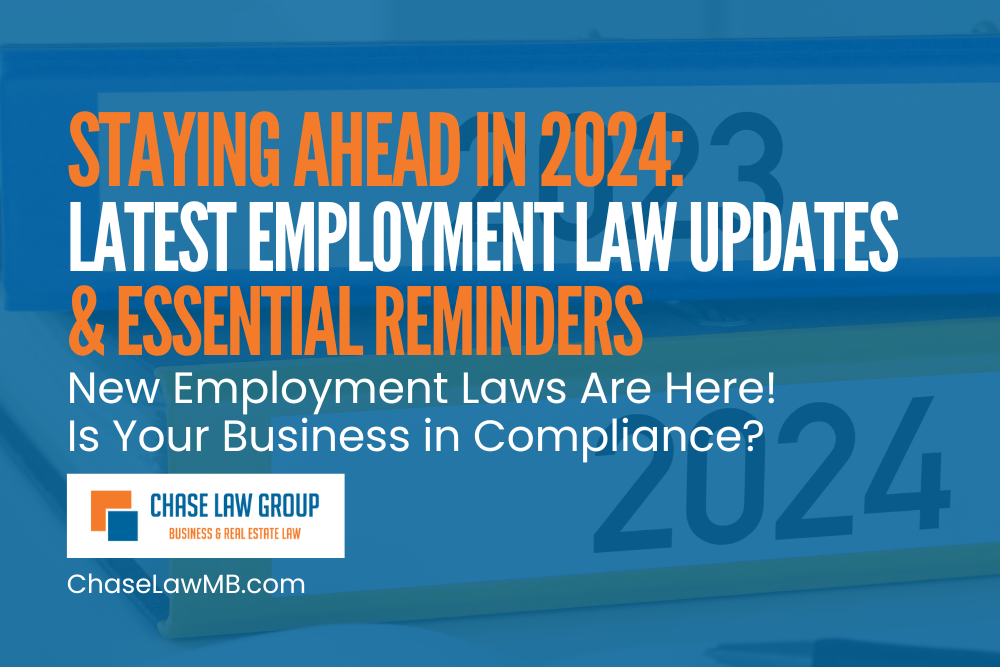
Time to Revisit Your Arbitration Agreement: Courts Issue Significant Decisions Regarding Arbitration Agreements In a significant decision for employers, in January 2024 a federal court in the case of Chamber of Commerce of the USA et al. v. Becerra, et. al. issued a permanent injunction barring California from enforcing Assembly Bill 51 which forbid employers from requiring arbitration agreements as a condition of employment. The recent decision ends a recent period of time of uncertainty as the case went through the appeals courts, and only voluntary arbitration agreements could be entered into with employees. Based upon the decision, California employers... READ MORE
California Passes Law Regarding Non-Compete Agreements, Including Employer Notification Requirements
By Admin October 30, 2023 Category: Employment
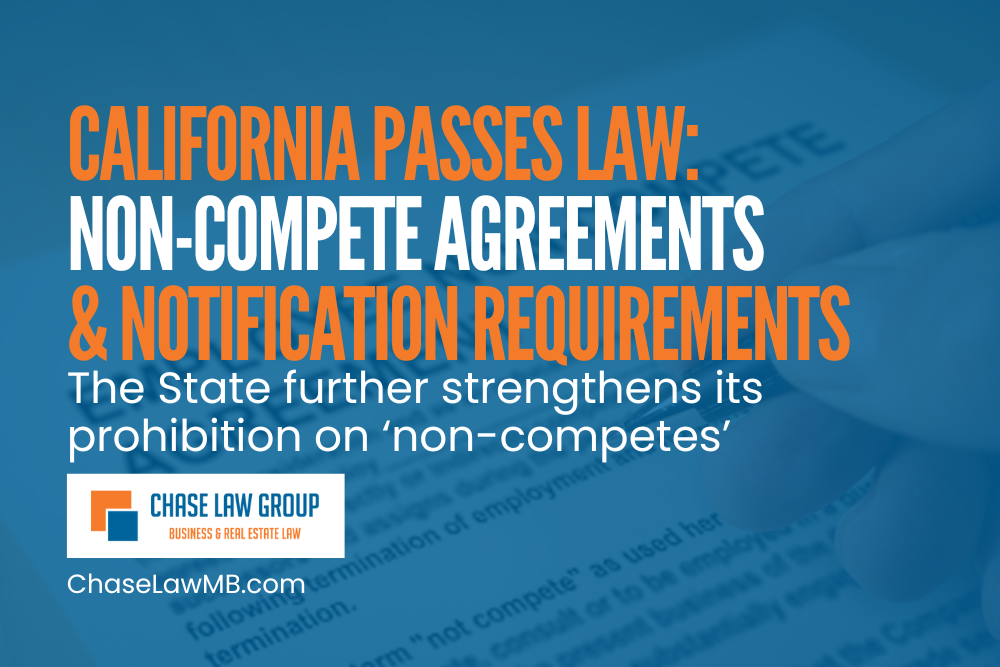
In recently passing two separate bills, Assembly Bill 1076 and Senate Bill 699, California has further strengthened its prohibition on non-compete agreements between employers and employees. California’s existing law, Business & Professions Code section 16600 already established that such agreements are void with very limited exceptions. However, the legislature remained concerned that some employers were still using non-compete agreements with employees as a deterrent. Therefore, California enacted Business & Professions Code section 16600.5 which effective January 1, 2024 will make it unlawful for an employer to even enter into a non-compete agreement with their employees. Employers who violate the new... READ MORE
California To Increase The Amount of Required Paid Sick Leave
By Admin October 30, 2023 Category: Employment
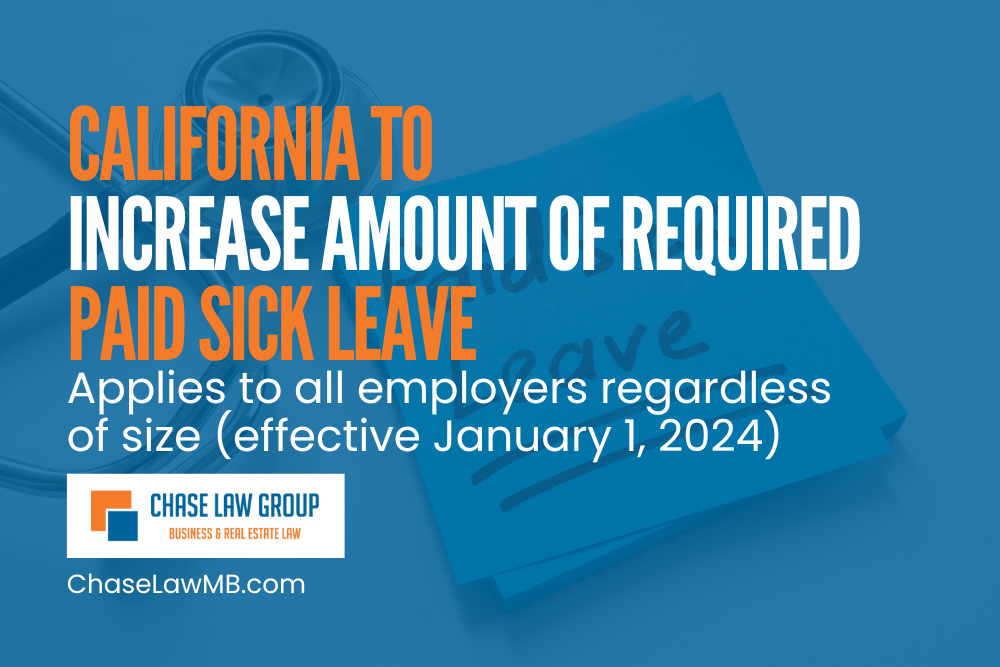
Effective January 1, 2024, California will require all employers to increase the amount of paid sick leave to their employees from the current requirement of 3 days to the new requirement of 5 days per year. The new law, SB616, signed by Governor Newsome on October 4, applies to all employers regardless of size. Note that certain municipalities provide greater paid sick leave, such as the City of Los Angeles. Employers that fall under those municipalities’ laws must provide the greater amount of paid sick leave and also comply with the requirements set forth below. The new law increases the... READ MORE
Location Matters: Minimum Wage Increase on July 1, 2023 is Based on Where Your Employees Work
By Admin June 28, 2023 Category: Business Law
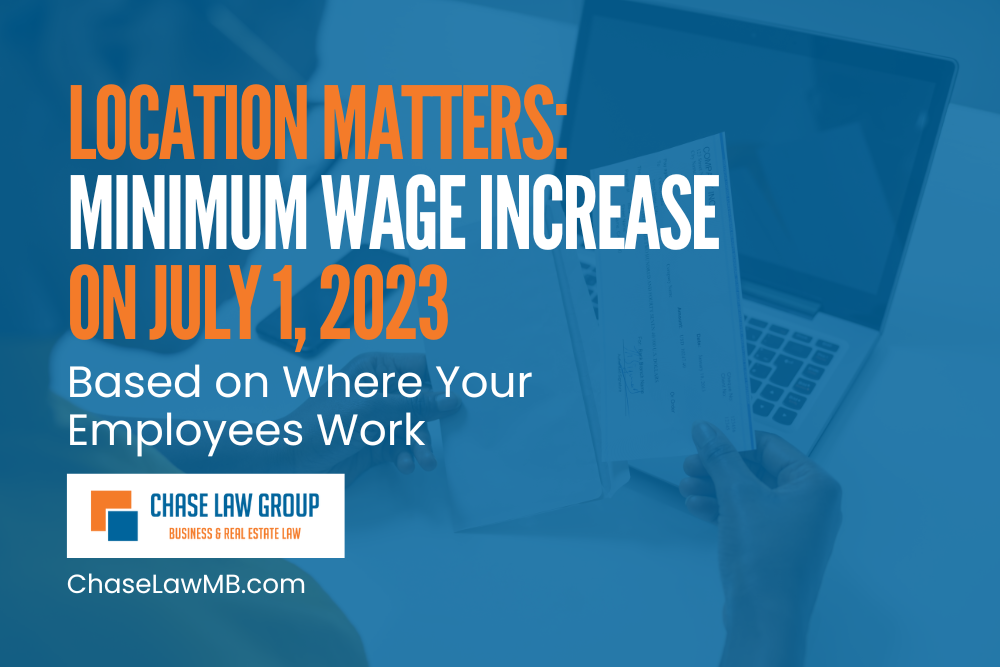
The state of California currently sets the minimum wage rate at $15.50 per hour. However, for employers with employees that work in specific cities (see below) the employers must also comply with local city minimum wage requirements when it is higher than the state mandated rate. Effective July 1, 2023, employers with employees in the following local cities, and unincorporated Los Angeles, will need to increase their minimum wage rate of pay as follows: Los Angeles City: $16.78/hour;Los Angeles County (unincorporated areas): $16.90/hour;Malibu: $16.90/hour;Pasadena: $16.93/hour;Santa Monica: $16.90/hour; andWest Hollywood: $19.08/hour Employers whose employees work remotely in any of these... READ MORE
Top 5 Essential Employment Documents Every Employer Should Have
By Admin June 14, 2023 Category: Business Law
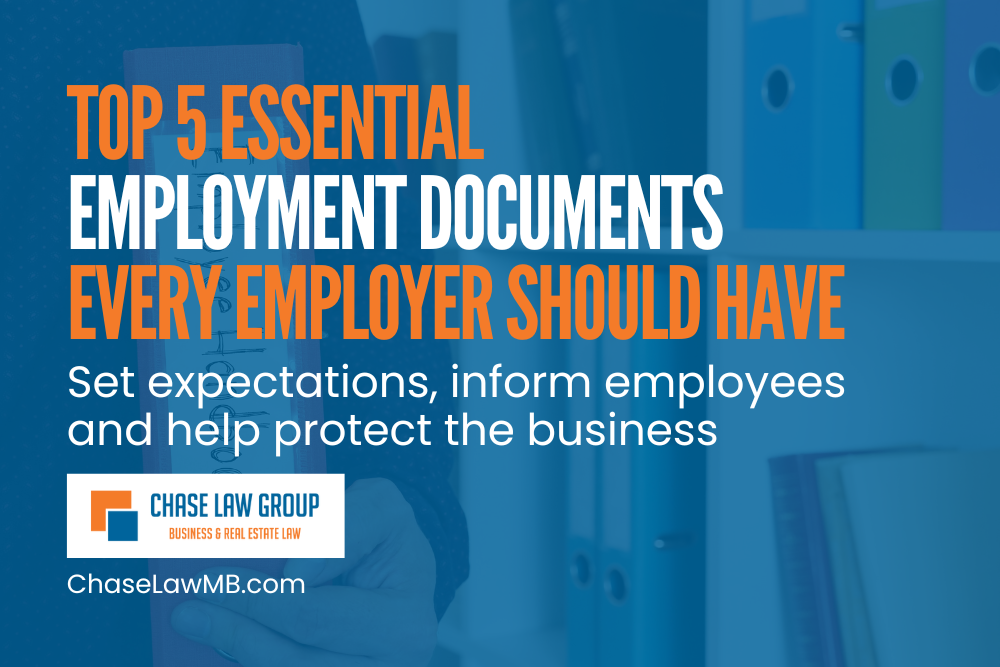
Whether your company is a large or small employer, there are five essential documents that should be implemented and distributed to your employees that will serve to both protect (as best as possible) the organization from employment-based claims as well as to keep your employees informed and notified of expectations concerning their employment. Consultation with experienced employment counsel, who can aid in preparing these various documents is highly recommended. The following are the top five essential employment documents every employer should have. Offer Letter Once a decision has been made to hire an employee, the critical terms and conditions of... READ MORE
Ninth Circuit Rules that Mandatory Arbitration Agreements with Employees are Permitted
By Admin February 21, 2023 Category: Business Law
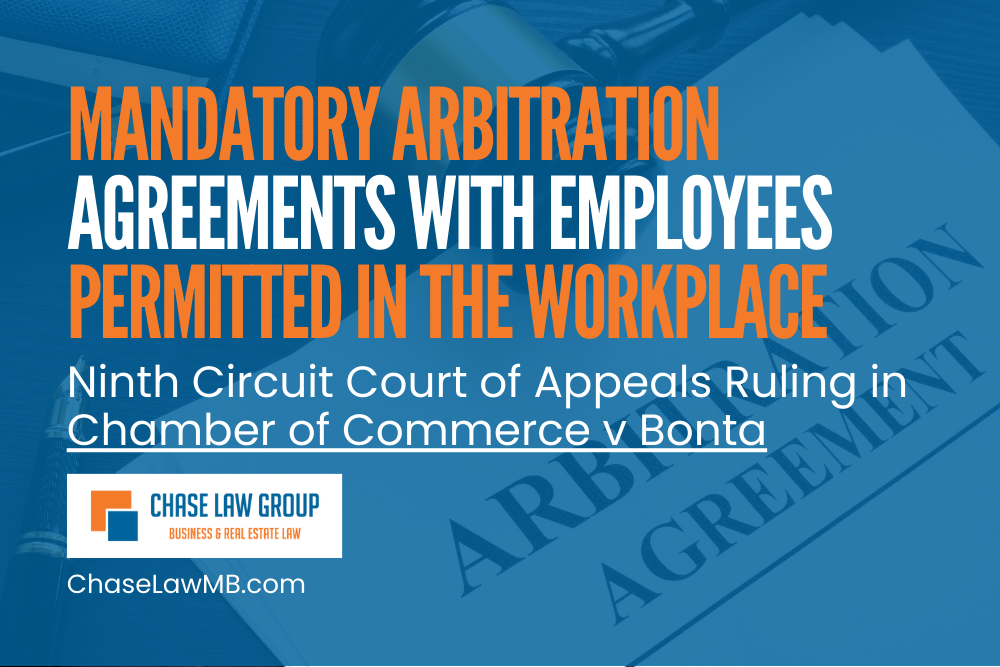
In a significant decision impacting employers’ ability to require new and current employees to agree to arbitrate their disputes, the Ninth Circuit Court of Appeals held by a 2-1 decision in Chamber of Commerce v. Bonta that AB51, enacted in California in 2019, which prohibited mandatory arbitration agreements, violated the Federal Arbitration Act. Based upon its ruling, which reversed an earlier decision issued by the Ninth Circuit, employers can now require employees to enter arbitration agreements as a condition of employment. California employers must now wait to see if the state of California will appeal to the full Ninth Circuit or the... READ MORE

